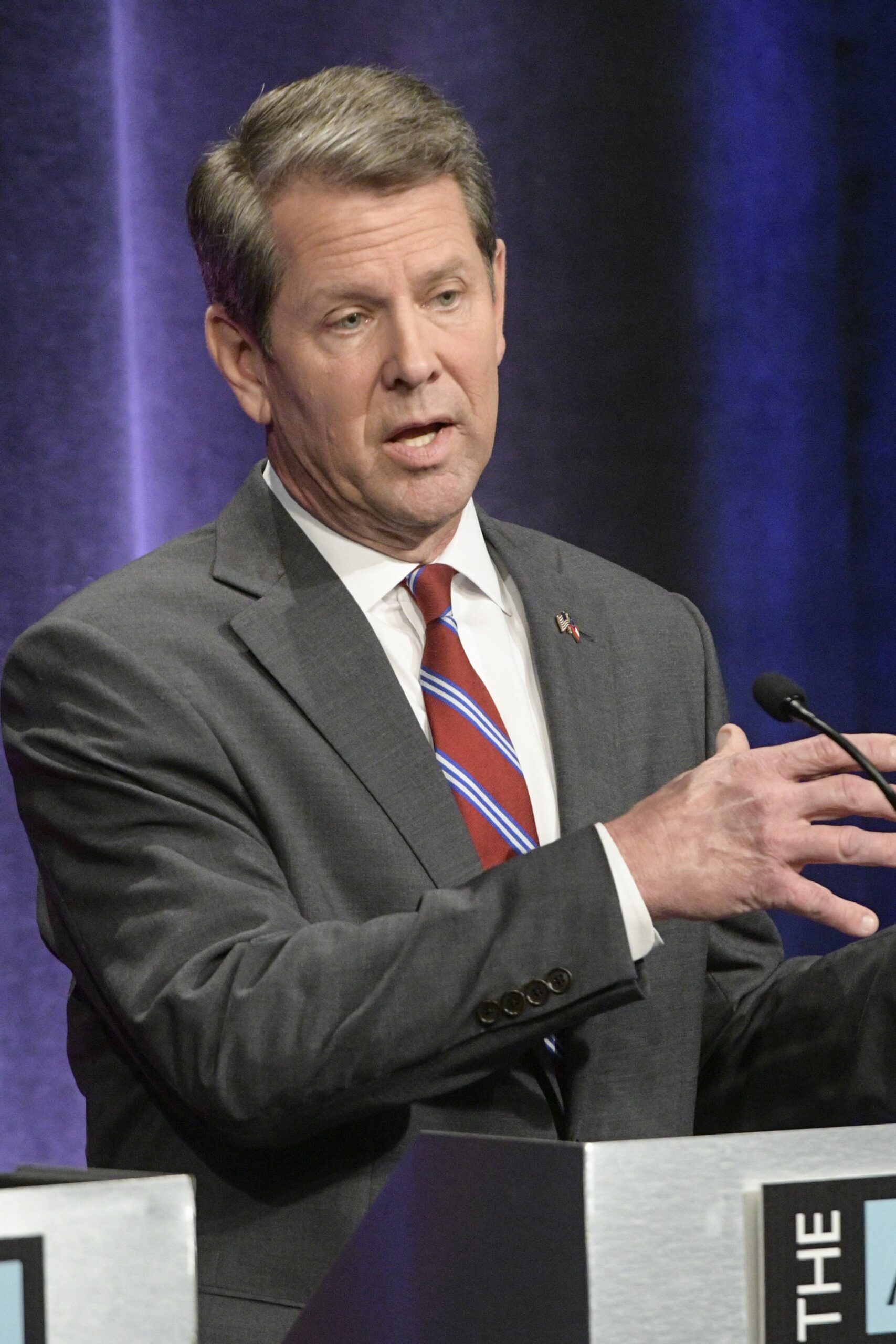Senate Panel Backs Waiver Bill To Insure More Georgians

The Patients First Act, Gov. Brian Kemp wrote in a recent editorial, “paves the way for state leaders to craft innovative flexibility options within Medicaid and the Affordable Care Act to lower health care premiums, enhance accessibility, and ensure quality outcomes in every part of our state.”
John Amis / Associated Press file
The Senate Health and Human Services Committee passed legislation Tuesday to allow Gov. Brian Kemp to pursue health care waivers from the federal government.
The panel’s 9-4 vote came after Senate Minority Leader Steve Henson, D-Stone Mountain, sought to open up the bill’s Medicaid waiver request to cover more Georgians.
Henson’s bid to amend Senate Bill 106, though, was not allowed by committee Chairman Ben Watson, R-Savannah.
During the hourlong hearing, no one spoke against the bill’s broad purpose – to cover more Georgians. The state has one of the highest rates of people without health coverage in the nation.
The biggest conflict, though, centered on two sets of percentages.
Full Medicaid expansion, as called for under the Affordable Care Act (ACA), would cover people up to 138 percent of the federal poverty rate, and the federal government has pledged to provide 90 percent of the cost for these newly eligible members.
Kemp’s bill would allow a Medicaid waiver of up to 100 percent of poverty (roughly $12,500 of income for an individual).
Federal health officials have not allowed the 90 percent match if a state requests the lower eligibility limit.
So at 100 percent of poverty, the state presumably would be in line for its regular Medicaid match, which in Georgia would be 67 percent.
Henson said that because of those restrictions, the legislation would cost Georgia more money and cover fewer people than full expansion, which he has proposed under Senate Bill 36. He said the Kemp waiver bill had been ‘‘rushed through,’’ with much more time spent on studying legislation to improve rural broadband.
Senate Bill 106, Henson told GHN, “is probably the most important bill we have this session.’’ He said Democrats would continue to press the question of Georgia getting the most people covered at the lowest cost.
Blake Fulenwider of the Georgia Department of Community Health countered that the governor ‘‘has been clear he’s not interested in a Medicaid expansion. What he’s looking for is innovation.’’
The Patients First Act, Kemp wrote in a recent editorial, “paves the way for state leaders to craft innovative flexibility options within Medicaid and the Affordable Care Act to lower health care premiums, enhance accessibility, and ensure quality outcomes in every part of our state.
“The Patients First Act empowers state leaders to craft flexibility options that will make insurance affordable but – more importantly – make health care available for the most vulnerable. By creating a Georgia-centric healthcare system, we can protect our local hospitals, support primary care physicians, and enhance access to behavioral health and wellness.’’
Sen. Blake Tillery, a Vidalia Republican and lead sponsor of the bill, told the Senate committee that the state would seek the 90 percent matching rate for the lower eligibility level.
Medicaid expansion has been adopted by 36 states. Republicans who form the elected leadership in Georgia have long opposed expansion here, saying it would be too costly. (Here’s a GHN article on a state fiscal analysis of Medicaid expansion)
Expansion was a big campaign issue in last year’s governor’s race. Stacey Abrams, the Democratic candidate, strongly supported expansion. Kemp, a Republican, opposed it.
Several groups testified in support of the waiver bill as written.
Kyle Wingfield of the Georgia Public Policy Foundation said, “It’s our view that states are best positioned to lead on health care.’’ He said adults from 100 percent to 138 percent of poverty are still eligible for subsidies in the health insurance exchange.
Two hospital groups, the Georgia Hospital Association and HomeTown Health, spoke in favor of the legislation as well. And Matt Hicks of Grady Health System said the waiver idea can allow Georgia the flexibility “to meet unique needs across the state.’’
Physician associations also applauded the effort to increase health care access, though Mary Daniels, representing the Georgia chapter of the American College of Physicians, said that going up to 138 percent of poverty would be ‘‘more cost-effective’’ and provide “tremendous economic support to rural hospitals.’’
Laura Harker of the Georgia Budget and Policy Institute said Senate Bill 106 was ‘’an important first step.’’ But at the lower matching rate, she said, Senate Bill 106 would cost “three times as much per patient,’’ costing $135 million more and covering 240,000 fewer people than the full 138 percent.
Another part of the bill would allow Kemp to seek a separate waiver for the health insurance exchange, created by the ACA.
Reinsurance, as some states have sought, would provide stability for the exchange premiums, said Laura Colbert of the consumer group Georgians for a Healthy Future. But other 1332 waiver ideas, such as to promote ‘‘junk insurance’’ plans [those with very limited benefits], could create “seismic and detrimental changes,’’ Colbert said.
Voting against the measure were Henson and fellow Democrats Nan Orrock of Atlanta, Gloria Butler of Stone Mountain and Lester Jackson of Savannah.
Andy Miller is editor and CEO of Georgia Health News








